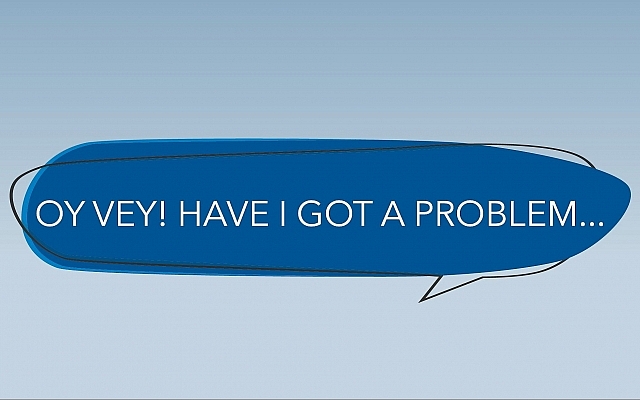Oy Vey: May 24, 2019
Got a problem? Email Rachel Stein at oyvey@atljewishtimes.com, describing your problem in 250 words or less.
Toco Hills resident Rachel Stein writes about spirituality and, working with readers, tries to help community members deal with dilemmas.
Dear Rachel,
As a fellow writer, I figured you might relate to my dilemma. I stepped right into the murkiest waters, and I’m wondering how to come clean.
I wrote a book, and you know how it is, deadlines, pressure from the editor to rewrite, revise, the thrill of your words collected inside a book that will reach thousands of eyes, the inner drive to finish …
Well, my book is a conglomeration of true stories, some of them culled from my own experiences. (Shhh, that’s a trade secret.) Naturally, I was careful to change details. However, there is one story where the protagonist is all too recognizable, despite my efforts to protect his privacy. Not only that, but I exposed certain personal details that clearly revealed his identity to anyone who knows him. And the absolute worst part is that I uncovered a part of his personality that was not very complimentary.
Immersed in my writer’s halo, I honestly thought I had covered my tracks, until I held the book in my arms and perused the stories. With a sinking feeling in my chest, I read that story and realized I had just burned a friendship. There was no way that my friend would not see through the mask and erupt in justifiable fury.
However, this friend is an intellectual, and his desire is to steer clear of this genre. He typically spends his leisure time reading purely intellectual literature, so there is a strong chance that he will never come across his story.
But considering that he might, should I tell him what I did, smothered in apologies – before he tells me a thing or two?
Sincerely, A Conflicted Writer
Dear Conflicted,
I wonder if many authors stumble in this arena until we become more proficient, or until the repercussions explode in our faces. Perhaps that is why editing is an integral part of the literary process, way before our work lands in the experienced hands of the editor.
It is an art to tell a nonfictional story in a way that leaves readers guessing as to the characters’ identities.
My gut feeling is that if there is a reasonable risk that your friend will discover himself in your book, you must be forthright. As difficult as this confrontation will be, it would be that much more cataclysmic if he approached you after discovering your “treachery” on his own.
Chances are that he will feel betrayed. You took a slice of his private life, without his permission, and exposed it to the world. Not only that, but you demeaned him, revealing a negative side of his persona that had hitherto remained under cover. And he thought you were his friend.
What more can you do than apologize? You can’t take back thousands of books that are comfortably ensconced in stores across the globe. You can offer that if there is a second printing, you will certainly retract that particular story.
Remember, my friend, an apology isn’t satisfying when accompanied by justifications. Simply speak from your heart.
“I never meant to hurt you. I am so terribly sorry. You are worth much more to me than a book. …”
Perhaps he’ll forgive you. He may need time, and wisdom dictates stepping back and giving him that space. In the ideal scenario, he will come back to you and say, “Yep, you goofed alright. But you are worth so much more to me than a book. …”
We’re all human, and we all goof – some times worse than others. I wish you the best of luck in this sticky confrontation and share your hope for a happy ending.
All the best, Rachel Stein




comments